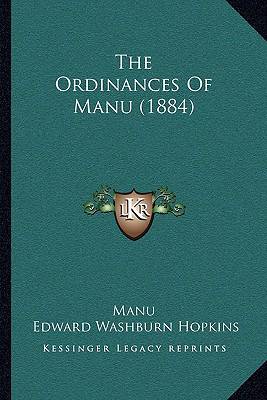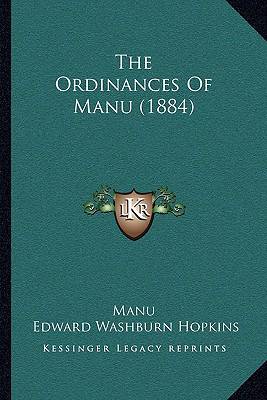
- Afhalen na 1 uur in een winkel met voorraad
- Gratis thuislevering in België vanaf € 30
- Ruim aanbod met 7 miljoen producten
- Afhalen na 1 uur in een winkel met voorraad
- Gratis thuislevering in België vanaf € 30
- Ruim aanbod met 7 miljoen producten
Zoeken
Omschrijving
The Ordinances of Manu is a book written by the ancient Indian sage Manu, believed to have lived between 2000 and 3000 BCE. The book is a comprehensive guide to Hindu law and social norms, covering topics such as marriage, inheritance, caste, and religious duties. Originally written in Sanskrit, the book has been translated into various languages over the centuries, including English.The 1884 English translation of The Ordinances of Manu by G. Buhler is considered one of the most authoritative and widely used versions of the text. The book is divided into twelve chapters, each of which covers a different aspect of Hindu law and society. The first chapter lays out the creation myth of the universe and the origins of the caste system, while the subsequent chapters delve into topics such as the duties of kings and rulers, the rights and responsibilities of women, and the role of religion in daily life.While some of the teachings in The Ordinances of Manu may seem outdated or controversial by modern standards, the book remains an important historical and cultural artifact that sheds light on the beliefs and practices of ancient Indian society. It is also a valuable resource for scholars and students of Hindu law, religion, and philosophy.This scarce antiquarian book is a facsimile reprint of the old original and may contain some imperfections such as library marks and notations. Because we believe this work is culturally important, we have made it available as part of our commitment for protecting, preserving, and promoting the world's literature in affordable, high quality, modern editions, that are true to their original work.
Specificaties
Betrokkenen
- Auteur(s):
- Uitgeverij:
Inhoud
- Aantal bladzijden:
- 450
- Taal:
- Engels
Eigenschappen
- Productcode (EAN):
- 9781165995677
- Verschijningsdatum:
- 10/09/2010
- Uitvoering:
- Hardcover
- Formaat:
- Genaaid
- Afmetingen:
- 152 mm x 229 mm
- Gewicht:
- 825 g

Alleen bij Standaard Boekhandel
+ 146 punten op je klantenkaart van Standaard Boekhandel
Beoordelingen
We publiceren alleen reviews die voldoen aan de voorwaarden voor reviews. Bekijk onze voorwaarden voor reviews.











